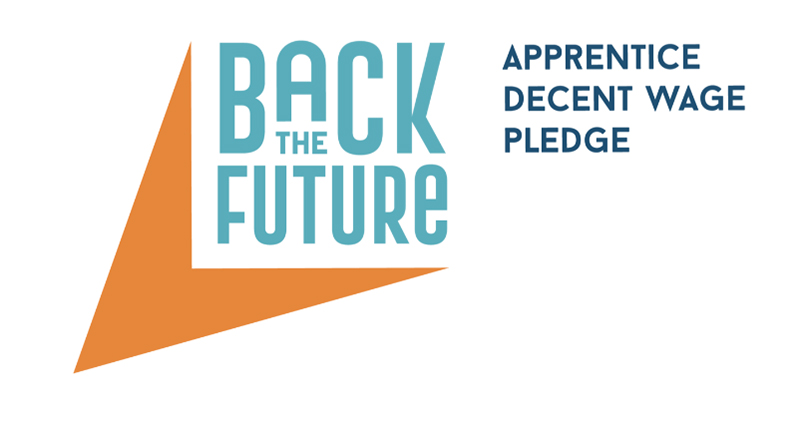A campaign has been launched to encourage employers to pay apprentices a “decent and fair” salary over and above the national minimum wage.
Founder Robert Watts, who chairs the Institute for Apprenticeships and Technical Education’s research scientist trailblazer group, hopes the ‘Back the Future’ initiative will help tackle the high dropout rate in apprenticeships that has troubled ministers.
The campaign asks businesses to pledge not to pay the national minimum wage for apprentices, which currently stands at £4.30 per hour and totals between £8,000 and £9,000 annually.
Watts said he has witnessed a number of individuals who due to having dependents or having to pay rent “could not afford to take an apprenticeship and were forced into a better paid role but that offered them little long-term development”.
While it can be “attractive to pay lower wages to apprentices”, these low wages can “act as a barrier and make apprenticeships exclusive rather than inclusive programmes,” he argued.
A “decent” apprentice wage, in the eyes of the campaign’s organisers, is anything between £6.25 and £7.70 per hour, which equates to £13,000 to £16,000 annually respectively for an apprentice working 40 hours a week.
Research into the “reasons for non-completion” in apprenticeships was published by the Department for Education in 2019 and found that “offer of a paid job” was the third most common reason for apprentices dropping out. “Apprenticeship did not pay high enough” was another common reason.
Then skills minister Gillian Keegan ordered an investigation into the “astonishingly” high drop-out rate for apprenticeship standards earlier this year.
It came after official government data published in March showed that just 60.2 per cent of apprentices training on new-style standards stayed on their programme until the end in 2019/20. This figure sat at 48.3 per cent the year before.
Watts said one of the biggest reasons for the high dropout rate is because they are “employed on low wages” and “simply cannot survive, eat and pay bills”.
More than 50 employers have so far signed up to Back the Future, including the Universities of Oxford who typically employ around 100 apprentices each a year.
Those who sign up will receive a ‘We Back the Future’ logo to use on their recruiting and marketing literature.
Watts said the idea is to not only raise awareness around this issue but also to “help those companies who perhaps cannot pay a higher wage now, work towards this wage or provide them with resources to help their apprentices manage their smaller budgets and be aware of how to handle debt and costs”.
Abcam, a global life science company, is one firm backing the pledge.
Mark Thomas, Abcam’s vice president for talent acquisition and development, said: “We recognise that to help apprentices reach their full potential, we have a responsibility to reward them fairly, invest in their development and provide opportunities for growth.
“Abcam fully supports the Back the Future initiative in driving new standards for apprentice wages.”
















Your thoughts